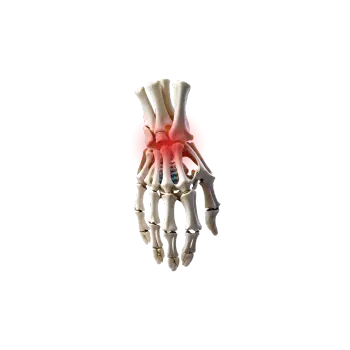What is rheumatism
Rheumatoid arthritis is a common informal name for a group of autoimmune diseases called rheumatoid arthritis (RA). RA is a chronic and inflammatory disease that affects joints and can lead to pain, stiffness, swelling and reduced mobility in the affected joints. In RA, the body's own immune system mistakenly attacks the tissues of the joints, especially the lining of the joint capsule, resulting in inflammation and damage to the joints. The disease can affect several joints at the same time and can develop gradually over time.
Symptoms Rheumatism
Symptoms of rheumatoid arthritis include pain and tenderness in the joints especially in the morning or after periods of inactivity. If left untreated, RA can lead to permanent damage to the joints and affect other organs and tissues in the body. Here is a bulleted list of symptoms of rheumatoid arthritis (RA):
Pain in joints: Pain is one of the most characteristic symptoms of RA and can be persistent or come and go walk.
Stiffness in joints: Especially in the morning or after periods of inactivity, joints may feel stiff and difficult to move.
Swelling of joints: The affected joints may swell due to the inflammation, leading to an increased girth or puffiness.
Joint tenderness: The joints may be tender to the touch or pressure.
Impaired mobility: RA can limit joint mobility, which can make it difficult to perform everyday tasks such as fully bending your fingers or knees.
Fatigue and general malaise: Many people with RA experience a feeling of general tiredness and exhaustion that is not always directly linked to activity.
Loss of appetite and weight loss: RA can affect appetite and lead to unwanted weight loss in some individuals.
Reduced muscle strength: Weakness in the muscles around the affected joints is common and can further impair mobility.
Joint deformities: If left untreated, RA can lead to permanent changes in the joints, which can result in deformities such as bent fingers.
Systemic symptoms: RA is a systemic disease that can also affect other organs and tissues in the body. It can lead to symptoms such as fever, inflammation of the eyes and heart problems in some individuals.
Causes of Rheumatism
The causes to rheumatism varies according to the specific rheumatic condition. Here are some of the most common causes of rheumatism and related diseases:
Autoimmune factors: Many rheumatic diseases, including rheumatoid arthritis (RA) and systemic lupus erythematosus (SLE), are autoimmune diseases. In these diseases, the body's own immune system mistakenly attacks its own cells and tissues, including the joints and connective tissue.
Genetic factors: Heredity plays a role in the development of certain rheumatic diseases. People with a family history of rheumatism, such as RA or ankylosing spondylitis, may have an increased risk of developing these diseases.
Infections: Some rheumatic conditions can triggered by infections. For example, reactive arthritis can develop as a response to a previous bacterial
Treatment
Treatment of rheumatism There is no way to cure or prevent rheumatism, but there are ways to slow down the course of the disease. In some cases, it is also possible to stop the development of the disease with the help of medicines. If you have been diagnosed with rheumatoid arthritis, you can do a lot yourself to alleviate the disease. With the help of a physiotherapist, you can get treatment and help with setting up an exercise program that strengthens the muscles and joints. Although rheumatoid arthritis causes pain, it is important that you do not stop moving because exercise is pain-relieving.




















